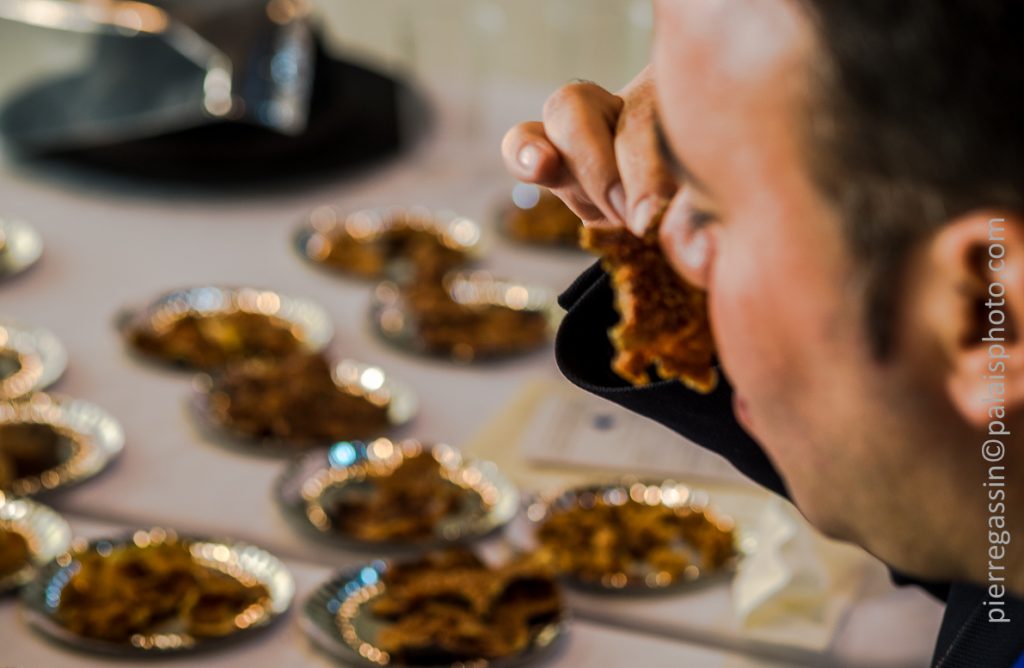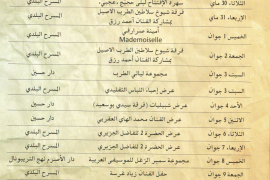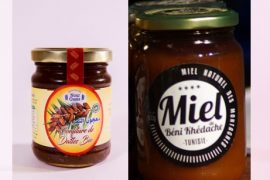Luminous room, 3 tasters per numbered table and bearing the names of a specialist, a technician and a consumer, simple evaluation sheets for each product and a final sheet for each category, here is the decoration of the room dedicated to the tasting of the 1st Tunisian Contest of Terroir Products held at the Tunis Science City. Orchestrated as a music paper, by the Agency for the Promotion of Agricultural Investments (APIA), supported by the PAMPAT project and the support of the Swiss cooperation (Seco), this first day promises good results but especially augurs a competition which is likely to grow rapidly if it continues to move forward with this speed and rigor. Report by Amel DJAIT

“You hear the flies, not a ring of the phone, real conversations between the tasters who feel charged with a real mission, that of being as fair and fair as possible. That of not harming any producer or product because behind it is a lot of commitments, jobs, families to feed and a brand that has agreed to play the game for this competition whose approach is voluntary. Through this testimony, Pierre who follows the course of the Competition, perfectly summarizes the atmosphere that marks this first day.
The process is voluntary and “each producer will receive a letter of thanks with a precise feedback of the comments from the tasters and an invitation to register for the next edition” says Marouane Chikhaoui, real engine and pin of this competition. The young man had to find, choose, motivate and explain to the tasters and producers the interest of such a contest. Only 30% of the participating products will be awarded. It is a severe ratio but it guarantees a certain level of quality.
 This competition has been preparing behind the scenes for a long time. The adventure has mobilized hundreds of people over 2 to 3 years of work, says Nuria Ackerman, coordinator of the project PAMPAT (http://www.onu-tn.org/Projets/3_Projet_dacces_aux_marches_des_produits_Agroalimentaires_et_de_Terroir_e_PAMPAT_u.html)
This competition has been preparing behind the scenes for a long time. The adventure has mobilized hundreds of people over 2 to 3 years of work, says Nuria Ackerman, coordinator of the project PAMPAT (http://www.onu-tn.org/Projets/3_Projet_dacces_aux_marches_des_produits_Agroalimentaires_et_de_Terroir_e_PAMPAT_u.html)

Joining the contest is a sign of maturity and awareness that has made its way. it is also the beginning of a new culture of “ranking” that is not part of our culture. However, for this first session more than 127 producers have immediately played the game.
In the average of the other competitions organized by the Swiss, in particular in Morocco, the aura of a competition increases according to its notoriety. But already, Walid Turki, producer of cider vinaire and participant as a taster in the category of technicians, regrets not having applied and proposed these products: “I did not know it! I was invited to be a taster. I regret it but will catch up with me next time “
A little further, at the table of tastings, we discuss around a flagship product of the country, the date. Each taster goes with his argument, color, aspect, taste, impression … Everyone has his own words to interpret a technical grid submitted by the Contest Committee that deals with appearance, smell, aroma, taste , the texture and the final impression.

At the tasting table of the “robb” (molasses) of pomegranates, caroub and dates, it’s the Foued Frini https://www.facebook.com/chef.foued.frini who chairs the table. Here, we realize that the contest is played with a few details! Here, we judge several molasses and we must take into account complementary assessments: innovative product, typed, exceptional, elaborated with care, seasoning to improve, defect in the raw materials, problem in the manufacturing process, conservation problem, taste or parasitic smell … Around the table, we evoke “a product too sweet or caramelized” or “a taste too strong” or “a strange color” … But ultimately, a product stands out. It is essential and unanimous among the 3 tasters.

While going around the tables, this case is almost the same for all the products in the running. The consensus is quickly reached. In the end, excellence stands out quickly and this is the challenge of the competition. Even if at the table of the tasters, there are only 3 people who legislate on the number of points to give, one quickly realizes that they are 3 + 1, the fourth being the product which is essential, that which stands out immediately by its quality, character, flavor ….
For chef Mounir Arem, Chef of Baroque cuisine http://www.le-baroque.tn/ and President of the National Academy of Cooking (ANC), which participates as a taster, this competition is to be welcomed and encouraged. In his post-competition vision, he explains that it’s now about “cooking with award-winning products is very important and beneficial. We will announce the winning products of this contest on our cards and menus. Our room leaders will be made aware of this. We, the chefs, when we go out in theaters, we will mention it to our customers! Good food is essentially based on good products! “

A little further, around the validation table results, we are working. Here, we do not laugh. The concentration is at its height. The cards of the competing products are processed in situ by software that has been developed for this purpose. The organizing team, nicely dressed in chechia, works as in a hive. All in silence, and in real “team”, they distribute the tasks and roles of a scenario already verified. Not a word higher than the other, the competition rolls like clockwork.

The first results are starting to fall. Always blind, only product codes remain visible.
It is now a question of grouping the products that have won gold medals to produce an Excellence Award by category. 50 juries are invited to vote. The excitement goes up! Hard to decide between a honey and a cheese and even more difficult to decide between a floral water, a jam, a date and a dried tomato! Yet this is the rule of the game … The tasters taste, think, hesitate and vote ….
 The results are scheduled for December 8, 2017. A business to follow!
The results are scheduled for December 8, 2017. A business to follow!









